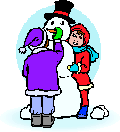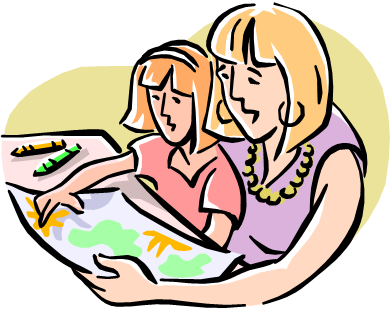 TRAVELLING WITH CHILDREN Travelling with children can be a rewarding experience but is it essential that you take some extra time with preparation and planning.
TRAVELLING WITH CHILDREN Travelling with children can be a rewarding experience but is it essential that you take some extra time with preparation and planning.
PLANNING THE TRIP
Organise immunisations and other medical preparations required for your trip such as antimalarial tablets, 4-6 weeks before travelling. Some vaccinations such as rabies are more important for children as they are at higher risk. Other issues like arranging dental care, travel or health insurance and ensuring local health facilities are available for children at your destinations may be important.
 Review your childs medications,including inhalers.Have enough supplies and check expiry dates.
Review your childs medications,including inhalers.Have enough supplies and check expiry dates.
Keep in mind the short attention span of children and the ease with which they tire - avoid too many long bus trips or consecutive days in museums. Whenever possible, break long journeys, and leave some unstructured time each day for children to play. Include plenty of food, drink and rest stops. Choose places to stay with them in mind - bungalows with verandahs, an area of garden or access to a swimming pool.
 FLYING WITH CHILDREN
FLYING WITH CHILDREN
Arrive at the airport early, and request seats along the bulkhead, or near the exits. Feed during take off and landing (or supply sweets/dried fruit) to encourage swallowing. This minimises ear discomfort. Always carry formula or juice as flying is dehydrating. Breast-fed babies may need extra feeds. Carry some snacks for toddlers as airline schedules rarely coincide with children's hunger and it is important to have supplies in case of delays. If appropriate also carry disposable nappies, plastic bags, moist towelettes, a change of clothes, change mat, a few toys, books or games. Phenergan can be useful for sedation or travel sickness. Ensure your child is restrained in a capsule or seatbelt when not moving around cabin.
NAPPIES
Disposable nappies are the best option - available in most major cities in Asia or South America, but difficult to find elsewhere in developing countries. Pack a small bag and replenish when possible - otherwise you will need a bucket, soaking solution etc or access to a laundry service.
EATING AND DRINKING SAFELY
Basic rules are similar for children as for adults:
- offer only boiled or bottled drinks
- serve cooked food, eaten hot - avoid raw salads
- serve fruit that has been peeled
- select clean looking restaurants and wash hands before eating
Breastfeeding infants is much easier and safer than attempting to mix formula. Long-life milk and packaged juice in sealed cartons are safe and available. Bottles can be sterilized with iodine tablets. Antiseptic handwash or hand wipes are very useful if you cannot get clean water to wash children's hands. Toddlers can be fed safely on peeled fruit, noodles, rice, soup, scrambled eggs and beans. Carry snacks (eg dried fruit, soft drink) on bus, car and train trips, and a few jars of baby food as a backup. Take a plastic bowl, spoon, and knife for peeling fruit, trainer cup, and bottles to facilitate impromptu feeds. Ensure teeth are cleaned with bottled or boiled water.
ENVIRONMENTAL HAZARDS TO AVOID
 SUN & HEAT: ALWAYS use a good block out. Limit sun exposure especially in the middle of the day. Ensure plenty of fluid is available. Cover up with T-shirt and hat. Dress your child in loose cotton clothing. Calamine lotion or a burn cream is useful to treat mild sunburn.
SUN & HEAT: ALWAYS use a good block out. Limit sun exposure especially in the middle of the day. Ensure plenty of fluid is available. Cover up with T-shirt and hat. Dress your child in loose cotton clothing. Calamine lotion or a burn cream is useful to treat mild sunburn.
ANIMAL BITES: Encourage your children to avoid touching animals, especially monkeys and dogs. Bites or scratches from animals can result in rabies. Animal bites should be thoroughly washed, antiseptic applied, and medical advice sought immediately.Animal bites need not be large or deep to cause disease.Avoid petting zoos.
 ACCIDENTS: Road traffic accidents are very common. Remember to use a seatbelt and bring or hire a child safety carrier or capsule if necessary.
ACCIDENTS: Road traffic accidents are very common. Remember to use a seatbelt and bring or hire a child safety carrier or capsule if necessary.
WATER: Drowning is an important preventable cause of accidental death. NEVER leave children unsupervised around water.
COMMON HEALTH PROBLEMS
DIARRHOEA : Dehydration is the main danger.Dont wait to see if the illness will be severe-Start ORS (ORAL REPLACEMENT SALTS).If vomiting give only small sips 10ml/5-10 mins.Avoid food if vomiting is present.Small frequent sips until vomiting stops.
Manage by fluid replacement (preferably with Gastrolyte, or other rehydration salts added to water), aiming for at least a litre of water/day for a toddler (ie 2 glasses after each loose motion). If Gastrolyte is unavailable, a suitable solution can be mixed up by adding 6 teaspoons of sugar or honey and 1 teaspoon of salt to one litre of water. Keeping sachets of salt and sugar from your flight is handy. Dilute sweet drinks like lemonade or fruit juice - 1 part juice to 4 parts water. If the child is hungry, a light diet of crackers, bread, boiled rice, mashed banana or clear soup is suitable; avoid dairy products or fried food.
SEEK MEDICAL ATTENTION if your child:
- has a high fever
- is passing pus or blood
- has diarrhoea for over 48hrs
- is listless
- lack of urination
Cuts &Amp; Scratches: These heal more slowly in tropical countries. Keep clean and dry, always apply antiseptic eg Betadine.
Mosquitoes: Can carry malaria and other diseases. Young children are at increased risk of severe malaria that can be rapidly fatal if left untreated. Use effective repellents eg Rid, Tropical Aeroguard. Avoid preparations containing more than 30%DEET as this can occasionally cause toxicity when used excessively on children's skin. Unless in air conditioned accommodation, infants and children should sleep under mosquito nets. Mosquito coils should be burnt out of reach of children. Worst time is dusk to dawn - if outdoors at that time, use repellent and cover up with pale coloured clothing. Seek prompt medical attention for any illness with fever if you are in or have been in a malarial area. Only a limited number of preventative antimalarials can be offered to children. Some are not safe for children to use and overdose of antimalarial drugs can be fatal. Always keep medications out of reach of children.
Updated August 2021.


